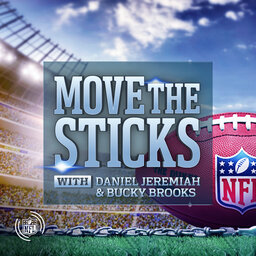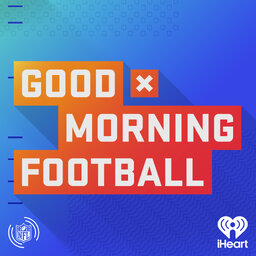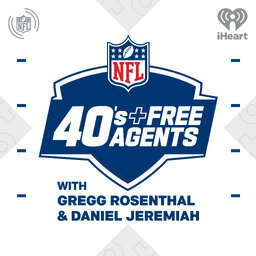Justin Jefferson's Contract Extension + When Should Offensive Linemen Be Taken in the Draft?
Daniel Jeremiah and Bucky Brooks are back with a new episode of Move the Sticks. Throughout the show, the guys give their opinions on the NFLPA's new offseason proposal for a reshaped offseason schedule (:30). Next, the pair react to Vikings wide receiver Justin Jefferson's record contract extension (6:34). For the rest of the show, the duo discuss 49ers offensive line coach Chris Foerster's comments on why he doesn't think a team has to draft an offensive lineman in the first or second round (12:35).
Move the Sticks is a part of the NFL Podcasts Network.
NOTE: timecodes approximate
In 3 playlist(s)
NFL: Move the Sticks with Daniel Jeremiah & Bucky Brooks
Former NFL scouts Daniel Jeremiah and Bucky Brooks break down the latest news and action around the …Social links
Follow podcast
Recent clips
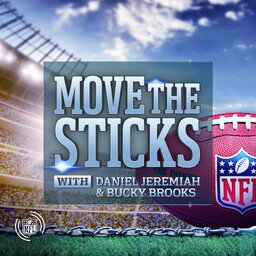
Daniel Jeremiah's 2026 Pre-Combine Media Call
1:12:17
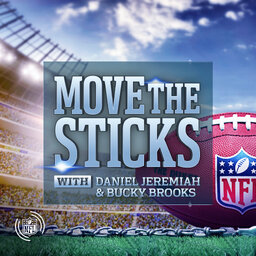
How Coaching Changes Reshape Draft Boards + Alternating Mock Draft 1.0
43:39
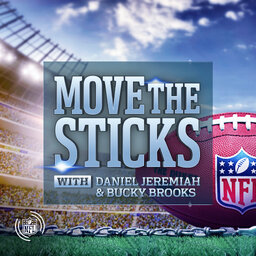
Fernando Mendoza’s Fit in Klint Kubiak’s Offense + Top RB and WR Draft Prospects
22:18
 NFL: Move the Sticks with Daniel Jeremiah & Bucky Brooks
NFL: Move the Sticks with Daniel Jeremiah & Bucky Brooks